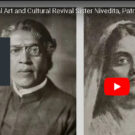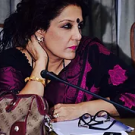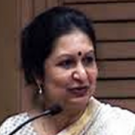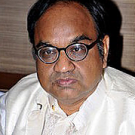
Visual Art and Cultural Revival: Sister Nivedita, Patrick Geddes, and the Tagores by Murdo Macdonald
Taking visual art as his guiding theme Murdo Macdonald explores the network of interdisciplinary thinkers that included Sister Nivedita, Patrick Geddes and Rabindranath Tagore. Attention is also given to the contribution of Rabindranath’s nephew Abanindranath, the leader of the Bengal school of painting. The analogies between Geddes’s advocacy of cultural revival in Scotland and Tagore’s advocacy of cultural revival in Bengal are also noted, as is the contribution of Ananda Coomaraswamy. Read more



